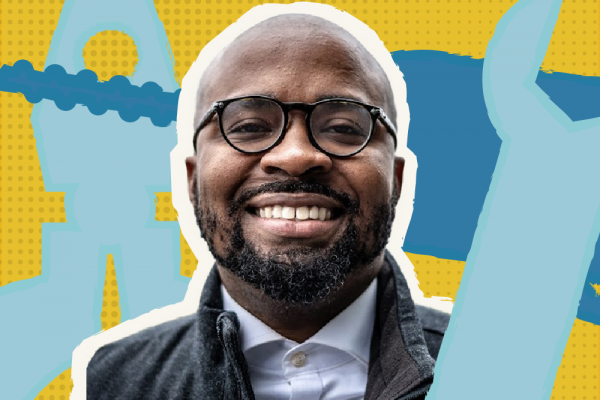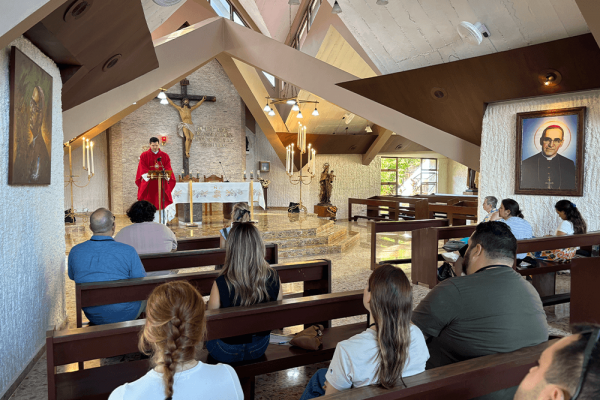For 30 years before she was ordained, Rev. Morgan Gordy was a nurse in Georgia, Mississippi, and Tennessee. She saw the link between poverty and death firsthand, and it often came down to lack of access to affordable health care.
“I’ve cared for so many people who either chose not to seek care because they didn’t have the money, or not to buy their medication,” Gordy said. “Parents who divorced to get their income below the limit and get coverage for kids, people who chose not to treat their cancer because of the cost and burden it would be on the family.”
For Gordy and other people of faith in the Bible Belt, extending health care coverage is an issue of “loving thy neighbor” in the most basic way, the meeting of a need every Christian should care about. Mounting research confirms that the checkups and prescription medications covered by Medicaid save lives and support healthy families but political jockeying on Medicaid expansions and extensions has required nonstop advocacy.
"It was beyond me that people could not see [the moral and practical case for Medicaid expansion],” Gordy said.
‘More than just pro-baby in the womb’
In Arkansas, Republican state Rep. Aaron Pilkington filed a bill that would extend pregnancy-based Medicaid eligibility from 60 days to a full year after the birth of a baby, an option provided by the American Rescue Plan. The bill didn’t pass but he’s hopeful that the state legislature will call a special session to address the issue of health care coverage for new moms. Health insurance for new moms is a pro-life issue, Pilkington told Sojourners.
“I’m Catholic. I believe in the right to life. Being probably one of the most pro-life states, we need to show the world that we’re more than just pro-baby in the womb. We’re pro-baby out of the womb as well,” he told Sojourners.
Pilkington also has a background in rural health care and understands the connection between healthy families and healthy babies. Arkansas has the highest maternal mortality rate in the nation — almost twice the national average — and around 20 percent of those deaths occur between 42 days and one year after delivery. The Arkansas Center for Health Improvement found that, for Black women, the leading cause of maternal mortality is cardiac disease, and for white women it is depression — both of which can be responsive to regular medical care. The mortality rate among Black women is higher than it is for white women, and, Wilson said, does not vary with income, a sign that “we’re dealing with systemic issues.”
“The 60 days is a historical relic,” said Craig Wilson, policy director for the Arkansas Center for Health Improvement, referring to the two months of Medicaid eligibility. “When 60 days was a bright line, most of the policy was focused on the baby, it didn’t focus on the mom. I think we’re coming to realize, as a baby that you can’t bifurcate the two.”
Tennessee did extend pregnancy based-eligibility, but, unlike Arkansas, has yet to adopt the broader expansion of Medicaid made possible by the Affordable Care Act, and Christian lawmakers there have played a large role blocking it.
Class and racial disparities in health care
In 2015, Rev. Matt Steinhauer, an ELCA pastor, was wearing his clerical collar when he approached his Tennessee state representative at a fundraising dinner, and asked to speak to her about a bipartisan Medicaid expansion program called Insure Tennessee that would have made coverage available to nearly 418,000 additional people. In line for hors d'oeuvres, he said, he asked her about her stance on the bill, which was starting to see resistance from the legislature’s far Right. The representative, an outspoken Christian, glanced at his collar and told Steinhauer, “Jesus said, ‘the poor you will always have with you,’” citing Mark 14:7.
Steinhauer waited for her to continue, assuming there would at least be some allusion to a plan to help the poor, but she said nothing more. Steinhauer worked in insurance before his career as a pastor, and said the lawmaker’s apathy left him almost speechless, but resolved moving forward.
“Health insurance is the key to health care in our market-driven health care culture,” Steinhauer said. It troubles him, though no longer surprises him, that eight years later, the battle for health care coverage in Tennessee is ongoing.“There is so little regard for the people who God is turned toward, which is the poor, the widow, the alien in our land.”
What bothers Rev. Kelli X, who pastors an African-centered Disciples of Christ church in Madison, Tenn., a Nashville suburb, is that lifesaving treatments exist, but are priced out of reach for many, as though they were luxury commodities.
“It means that only certain people, only certain bodies, only people of a certain class are worthy to receive care,” she said. “That feels unjust and unholy. It does not align with values of Christianity that I hold so dearly.”
Their conviction that Insure Tennessee was a moral necessity was how Gordy, X, and a small group of pastors and laity found themselves being escorted out of the governor’s office in handcuffs in 2015 — arrested for refusing to leave the office until they had answers on why the dying bill was being dropped. The action and reaction were reminiscent of the Civil Rights era, X said, which did not surprise X in the slightest.
“The health care piece is what kind of pushes the extremes when it comes to political extremism,” X said, and it shows the lengths lawmakers would go to — denying health care to their own constituents — in order to sink the Affordable Care Act. “It speaks to racism. It speaks to a decision to push back on anything that President Obama created.”
Making a difference without states’ help
Racism in health care is a barrier to access even where Medicaid is available, said Esther Dixon, executive director of Difference Makers of Hot Springs, a community empowerment nonprofit in Arkansas. “There’s mistrust in the medical establishment and the government,” Dixon said. From the Tuskegee Institute atrocities to doctors believing Black people have a higher pain tolerance than white women, she said, the mistrust is earned.
Too often there’s no outreach accompanying government programs. Difference Makers has become an official partner of the Arkansas Department of Health and the University of Arkansas Medical School to bridge that gap.
Outreach and education are their ongoing mission, but at one point their primary challenge was keeping the local health unit open, Dixon said. They had to petition the city to continue providing funding for the joint-funded clinic, knowing that if it closed, their neighbors, especially pregnant people, would be forced to travel to other cities and counties.
Michele Johnson, executive director of the Tennessee Justice Center, said keeping clinics open in low-income and rural communities only gets more difficult without expanded Medicaid. As the COVID-19 emergency rules end and people are removed from Medicaid rolls for the first time in three years, hundreds of thousands will likely lose coverage, and 30 hospitals that were financially struggling before the pandemic will likely close, leaving rural Tennesseans in a health care desert.
“It’s been like watching a nightmare in slow motion,” Johnson said. “There is really zero policy basis for not having the (Medicaid expansion) conversation.”
But activists have found ways to continue their uphill efforts even when not winning policy arguments. Difference Makers invites doctors and medical experts to community forums so that people can ask questions, learn what their Medicaid entitlements are, and advocate for themselves when they go to the doctor.
“It’s about making sure people are aware of what’s being offered,” said Difference Makers founder Rev. Willie Wade, Jr.
Got something to say about what you're reading? We value your feedback!






